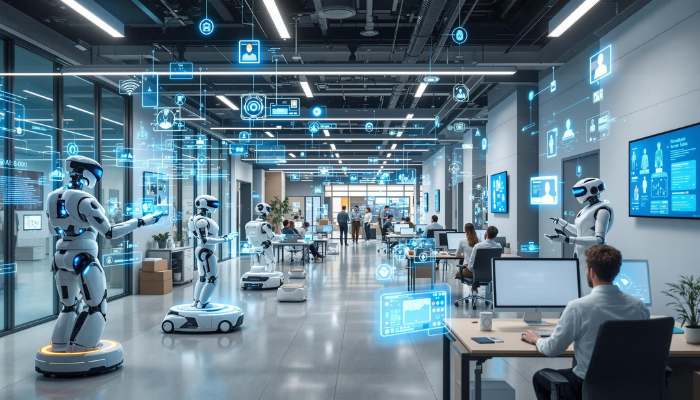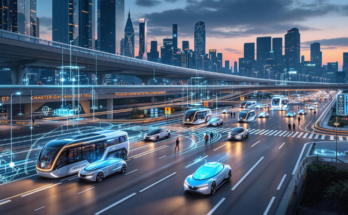If there was ever a topic that could be said to be slowly making its way to the mainstream economically, then automation is it. On the one hand, automation brings a gush of benefits such as reduced costs, better quality, and efficiency; on the other hand, it brings incore questions when it comes to employees. Analyzing the tendencies of companies’ usage of automation technologies, Severson expresses more concern regarding employment in the future. Working on this article, we will describe trend in employment, the impact of automation on employment, and the strategies that can be implied in this regard.
The Effect of Automation on Employment
The industrial revolution is at it again and this time round it in the form of automation which is redefine employment through automating tasks. Robotic process automation and embodied intelligence in form of artificial intelligence and machine learning have become more advanced and are thus capable of handling numerous processes, ranging from record input to data interpretation and decision making processes. As these technologies become commonplace, these employment changes will become measurable in individual sectors and industries.
1. Manufacturing
The use of technology is most common in the manufacturing sector; the uses of robots and CAD software are almost part of everyday practice. Today, it has become common for companies to incorporate the use of production automation as a way of rationalizing production line, enhancing the enhancing production quality and reducing the manufacturing expenses. With the automation of many manufacturing jobs by robots and artificial intelligence, the factory-line human workforce is rapidly becoming obsolete for low skill jobs that require drudgery.
2. Service Industry
Robotic process automation is also starting to take the service industry by storm, with organizations employing AI and machine learning solutions into customer engagements and operational improvement. Those things that were earlier done by real people are now automated by self-serving chatbots and virtual assistants. In addition, through the use of automation technologies, they are now capable of predicting and analyzing large quantities of data which h El camino para la expansión de la resiliencia en las organizaciones as enhances the decision making and the running of the company.
3. Administrative ClERICAL Posts
Technology is also affecting the traditional office working environment for example through the use of robotic automation. Today, the role of administration is to minimise actual human engagement in clerical work that can be delegated to cloud-based technologies and productivity tools such as automated data input and document flows, and appointment calendars. These employees in these various capacities are rather being pressured or eased out, by the dictates of change, which is now a rampant factor of commerialisation of the organisations.
Challenges and Opportunities
The issues and prospects about the automation of jobs for the personnel as well as for the employer has been identified. Due to the increasing use of automation technologies in the business world through discussions of productivity, some occupations may face the danger of redundancy hence job losses, there will be lack of job requirements to meet.
1. Job Losses
This is because there will be limited needs for formal workforce since more and more companies and organizations turn to technology to do most of the work, and this usually leads to loss of jobs. While the pace of change varies by industry, the long-term trend is clear: According to the analysis, Automation technologies will substituted many of the repetitive and labor intensive positions.
2. Skill Gaps
This means that as jobs are changing to become more automated there will be increasing demand for workers capable of working well with such technologies. Employers will continue to identify a shortage in talent with experience in fields such as data, software development, artificial intelligence and so on, that will prove to be a challenge.
Opportunities for Employees
However, the given approach also has numerous advantages for workers that are connected to the automation of work. With proper skills, these workforce employees will be in a position to take advantage of the growing trends in employment and gain placement in the new emerging work force.
1. Upskilling
Automations mean that employees should aim to learn new things that would suit the new technologies. Particularly, the employees need to be good in specialty of data analytics, artificial intelligence, and computer programming. Thus, employee can optimize their benefits in the job market and find positions which are more fulfilling and paid.
2. Entrepreneurship
The work automation also opens prospects for expressing entrepreneurial initiatives among the staff. With the increasing concerns of specialized services and products, the employees can be empowered them to launch their own ventures, hence employment their talents and expertise in creating employment for themselves and others.
The Governments and Companies all around the world
Self-Directed Learning using mobile technologies have significant potential to prepare workers for the future of work and Governments and companies bear the responsibility of preparing their employees for the future of work. Lifelong education should remain a policy goal towards which efforts should be directed towards ensuring that the employee is trained adequately to meet the challenges of the labor market.
But, companies ought to work towards upskilling and reskilling their workforce by providing them the opportunities. Employment is not a permanent job anymore, so companies can support trainings and development and help the workers to perform well within employment environments.
Conclusion
It is almost certain that the future of work is truly governed by automation in every sense of the word, as we can discover below. On the one hand, automation technologies involve some risks—e.g. job loss, skill mismatch, etc.; on the other hand automation technologies offer new opportunities, e.g. are able to transform employees into more skilled employees or into entrepreneurs or even to bring new professions.
In this environment of flexibility, change must be driven and people training must be owned by the employee. By doing so, they will ensure that they make it to the future workforce and get the right fulfilling and well remunerated careers. First, governments and companies cannot avoid their responsibility to provide and encourage lifelong learning, to support employees’ training and to ensure all conditions for innovations and development. In combination, we are at the strength to utilize automation’s significance to have a better and a new prospect of wellbeing in life.




